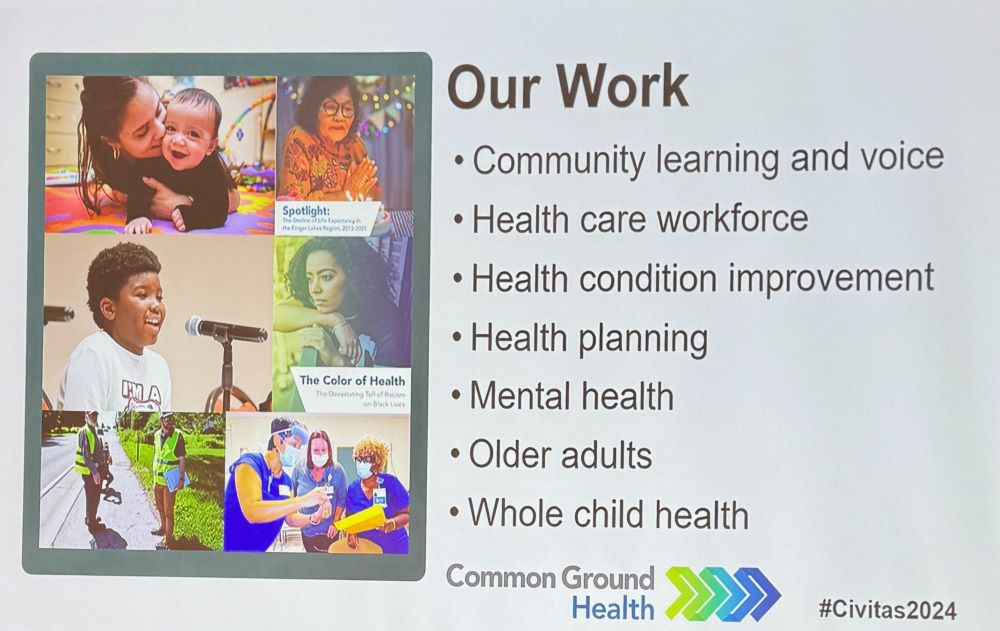
This Civitas Networks for Health® session offered a compelling look at how Common Ground Health has transformed how data is used to improve health equity in the New York Finger Lakes region. The session underscored that while data is critical, it’s the relationships and trust built within communities that turn data into real action.
Common Ground Health shared examples of their initiatives, such as the Get It Done initiative, where barbershop and beauty salon staff are an integral part of communicating with the community and gathering data. They are equipped with blood pressure devices, trained to administer Naloxone (Narcan), and serve as ambassadors for opioid overdose prevention. These trusted community spaces have become hubs for education and outreach, providing life-saving interventions and connecting community members with health resources. Similarly, the Pair of Aces initiative highlighted the importance of youth-led recommendations in tackling the mental health challenges exacerbated by COVID-19. Youth emphasized the need for authentic relationships, breaking down the stigma around mental health, and redesigning policies to better serve them.
A core theme of the session was the importance of engaging community members and organizations from the very beginning of each initiative. Residents are involved in every phase of the process, from data collection to solution design. This involvement ensures that the data reflects real experiences and that the solutions are grounded in the community’s needs. By leveraging trusted networks, Common Ground Health guarantees that health information and services reach people where they are, whether in a barbershop, salon, or local community hub.
The presenters acknowledged challenges, including the deluge of data and inconsistent collection across sites. They stressed the need to bridge the gap between raw data and actionable insights by incorporating lived experience into the decision-making process. Lessons learned included the importance of data literacy—ensuring communities understand and can act on the data they help gather—and maintaining trust and intentionality throughout the process.
Ultimately, this session highlighted that building relationships and trust within communities is just as important as the data itself. By working alongside community members, Common Ground Health is turning data into meaningful action that directly improves health outcomes in the Finger Lakes region.

